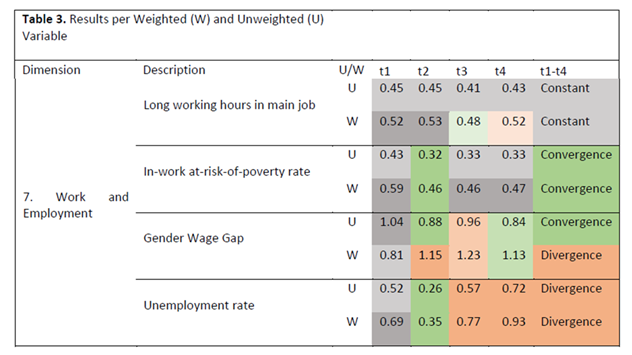Source: European Commission, 2020
Socioeconomic convergence is at the root of the European project and the need for addressing and monitoring social convergence, alongside the economic one, has gained particular emphasis in the European policy agenda.
In this vein, the European Commission has published a research document in order to introduce a new approach to convergence and a new method to measure it, building on the salience weights that citizens give to different dimensions of quality of life. This approach contrasts sharply with the standard approaches that look at economic position and a few related indicators, thus imposing dimensions that the analyst considers relevant.
The key aim of this study was to compare convergence between using raw data and weighting dimensions by salience indicators. The information for the salience indicators comes from the European Social Survey. Thus, the study established seven research dimensions:
- Health, food and shelter
- Physical Integrity
- Happiness
- Education
- Environment
- Participation in Political Activities
- Work and Employment
Dimension 7: Work and Employment

Source: European Commission, 2020.
The main results show that the EU has achieved convergence in both its economic and social dimensions over recent decades. However, the economic crisis brought these trends to a sudden halt on some indicators, stalling patterns of convergence or causing Member States to diverge in their performance.
As research shows, the state of affairs in the EU might be considerably more complex than the “convergence machine” narrative suggests. In the EU we are looking at a set of countries that are, in global terms very similar, for this reason, any differences are important – both inside the EU and for wider comparisons.
The aggregate indicators suggest that most EU member states are converging in most relevant dimensions of life. However, many citizens do not necessarily experience that as such. In light of the broad disenchantment with the European political economy, expressed in social and political terms through new protest movements and parties, the findings suggest that a more careful understanding of the preoccupations of citizens will have to be part of the political and policy repertoire in future.
To read the study click here
